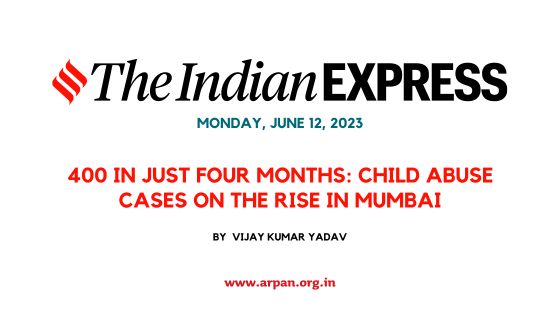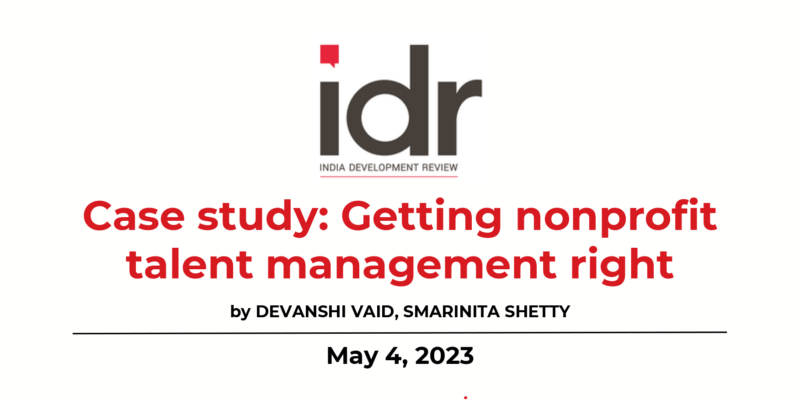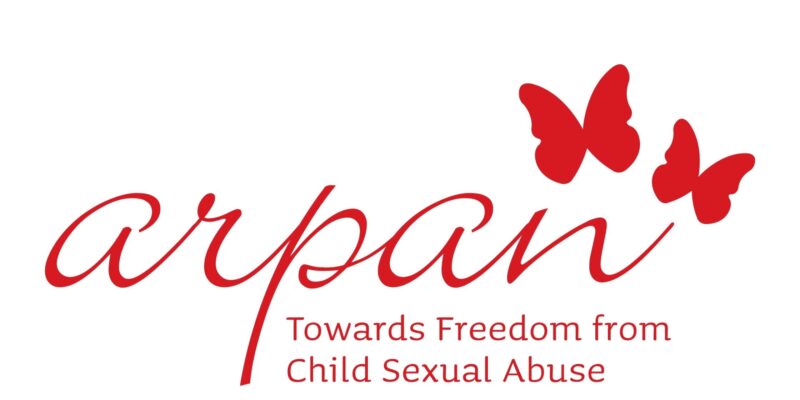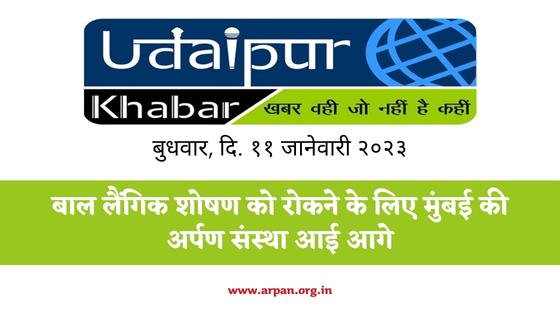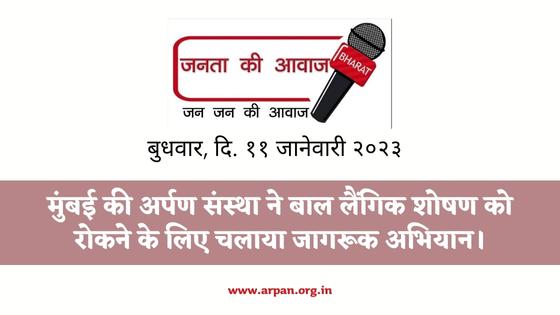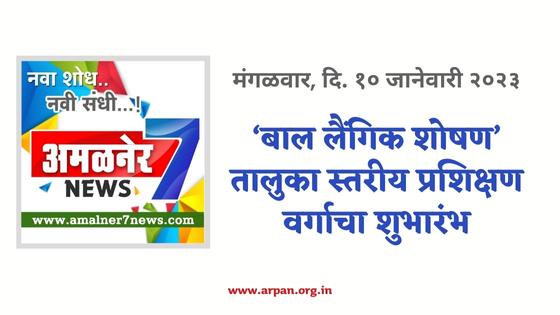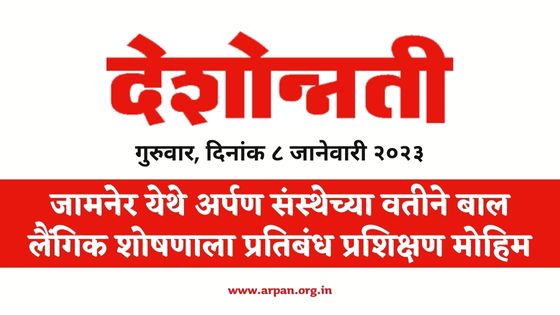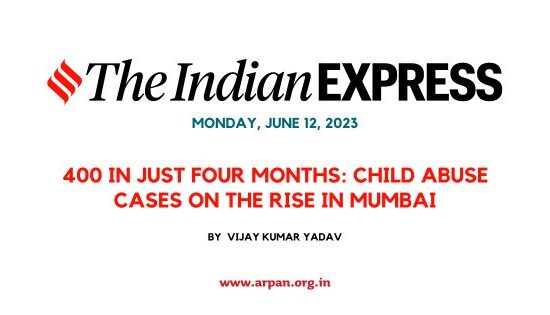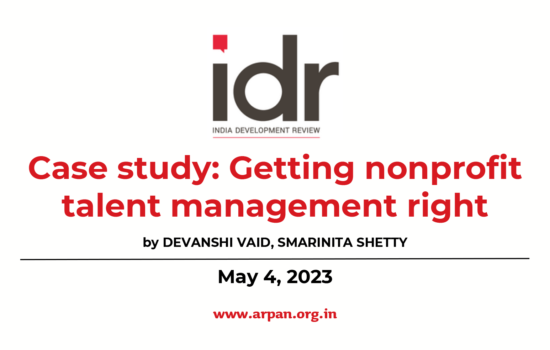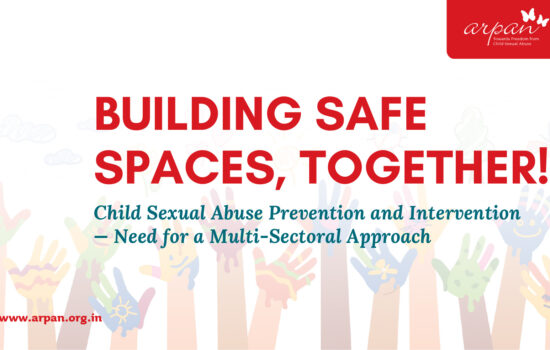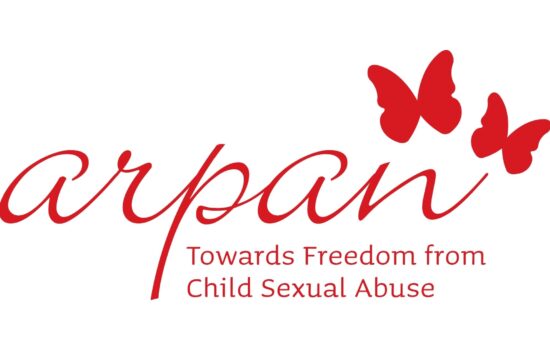Within just four months of this year, Mumbai has already recorded nearly 400 cases of child abuse. The cases of child sex abuse that are generally registered under sections of the Protection of Children from Sexual Offences (POCSO) Act have been gradually increasing in Mumbai.
As per the data available with the police department, in the first quarter of this year (till April), the Mumbai police have recorded nearly 400 cases of rape, sexual assault and molestation of minors against 371, 355 and 349 cases during the corresponding period of 2022, 2021 and 2020, respectively.
If year-wise data is seen, then the same upward graph is also observed in Mumbai, with 938, 1,066 and 1,157 cases reported in the years 2020, 2021 and 2022, respectively.
A senior police officer said that in the majority of cases, the offenders are known to the victims. There are many cases where the family, despite knowing about the cases, chose not to report them.
Some of the cases also involve incidents where the minor victims did not tell their parents about their ordeal due to fear, but when they discovered that they were pregnant, they revealed it to their parents and had to undergo abortion.
The police department has not been able to figure out the exact cause or factors behind the gradual increase in cases under the POCSO Act, but a senior police officer said that the upward graph in cases should also be attributed to the fact that the victims are not hesitant to take the police’s help. However, non-profit organisations in the city feel that insensitive handling of cases of sexual offences involving children by the police also exists, and it cannot be denied as an exception.
Neha Pednekar of NGO Yuva Child Help Line said, “We come across cases of insensitive handling of POCSO cases. In one such case, a police officer from the eastern suburbs slapped a 15-year-old rape victim. Later, when she approached us, based on her complaint, not only the accused was arrested but a child sex racket in some other region was also busted on the basis of information provided by the girl.”
As per the National Crime Records Bureau report of 2021, Mumbai ranks number two in recording the maximum number of POCSO cases (1,048). In every single case of POCSO, the offender was known to the victim, the data revealed.
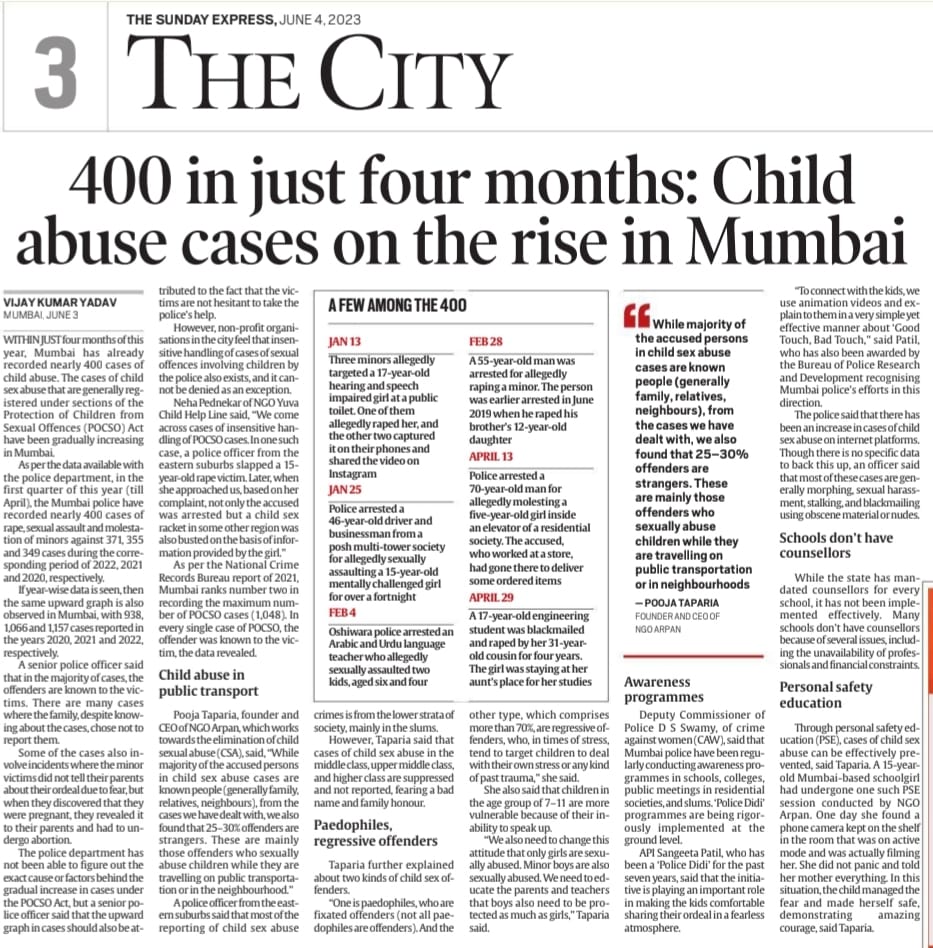
Child abuse in public transport
Pooja Taparia, founder and CEO of NGO Arpan, which works towards the elimination of child sexual abuse (CSA), said, “While majority of the accused persons in child sex abuse cases are known people (generally family, relatives, neighbours), from the cases we have dealt with, we also found that 25–30% offenders are strangers. These are mainly those offenders who sexually abuse children while they are travelling on public transportation or in the neighbourhood.”
A police officer from the eastern suburbs said that most of the reporting of child sex abuse crimes is from the lower strata of society, mainly in the slums. However, Taparia said that cases of child sex abuse in the middle class, upper middle class, and higher class are suppressed and not reported, fearing a bad name and family honour.
Paedophiles, regressive offenders Taparia further explained about two kinds of child sex offenders.
“One is paedophiles, who are fixated offenders (not all paedophiles are offenders). And the other type, which comprises more than 70%, are regressive offenders, who, in times of stress, tend to target children to deal with their own stress or any kind of past trauma,” she said.
She also said that children in the age group of 7–11 are more vulnerable because of their inability to speak up.
“We also need to change this attitude that only girls are sexually abused. Minor boys are also sexually abused. We need to educate the parents and teachers that boys also need to be protected as much as girls,” Taparia said.
Awareness programmes
Deputy Commissioner of Police D S Swamy, of crime against women (CAW), said that Mumbai police have been regularly conducting awareness programmes in schools, colleges, public meetings in residential societies, and slums. ‘Police Didi’ programmes are being rigorously implemented at the ground level.
API Sangeeta Patil, who has been a ‘Police Didi’ for the past seven years, said that the initiative is playing an important role in making the kids comfortable sharing their ordeal in a fearless atmosphere.
“To connect with the kids, we use animation videos and explain to them in a very simple yet effective manner about ‘Good Touch, Bad Touch,” said Patil, who has also been awarded by the Bureau of Police Research and Development recognising Mumbai police’s efforts in this direction.
“One is paedophiles, who are fixated offenders (not all paedophiles are offenders). And the other type, which comprises more than 70%, are regressive offenders, who, in times of stress, tend to target children to deal with their own stress or any kind of past trauma,” she said.
She also said that children in the age group of 7–11 are more vulnerable because of their inability to speak up.
“We also need to change this attitude that only girls are sexually abused. Minor boys are also sexually abused. We need to educate the parents and teachers that boys also need to be protected as much as girls,” Taparia said.
Awareness programmes
Deputy Commissioner of Police D S Swamy, of crime against women (CAW), said that Mumbai police have been regularly conducting awareness programmes in schools, colleges, public meetings in residential societies, and slums. ‘Police Didi’ programmes are being rigorously implemented at the ground level.
API Sangeeta Patil, who has been a ‘Police Didi’ for the past seven years, said that the initiative is playing an important role in making the kids comfortable sharing their ordeal in a fearless atmosphere.
“To connect with the kids, we use animation videos and explain to them in a very simple yet effective manner about ‘Good Touch, Bad Touch,” said Patil, who has also been awarded by the Bureau of Police Research and Development recognising Mumbai police’s efforts in this direction.
Schools don’t have counsellors
While the state has mandated counsellors for every school, it has not been implemented effectively. Many schools don’t have counsellors because of several issues, including the unavailability of professionals and financial constraints.
Personal safety education
Through personal safety education (PSE), cases of child sex abuse can be effectively prevented, said Taparia. A 15-year-old Mumbai-based schoolgirl had undergone one such PSE session conducted by NGO Arpan. One day she found a phone camera kept on the shelf in the room that was on active mode and was actually filming her. She did not panic and told her mother everything. In this situation, the child managed the fear and made herself safe, demonstrating amazing courage, said Taparia.
Source : IndianExpress

